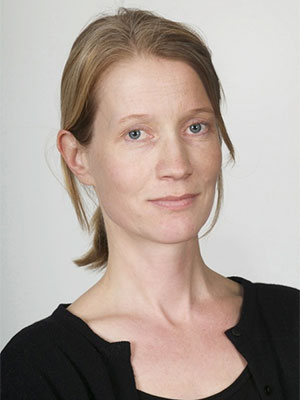Nominated by:
- Maren Ringstad, Advisor, Department of Sociology and Human Geography, SV
Election platform

Motivation to stand for election
I want to contribute to the further development of UiO as a dynamic, future-oriented and attractive place to study and work. In order to achieve different strategic goals UiO needs all employee groups to move in the same direction.
I myself work at the intersection between faculty and department. I have good insight into what goes on in the collaboration across these levels, and between administration, academic staff and our students. I see this as a useful experience to bring into a board position at UiO.
Matters I am particularly interested in
UiO as an attractive place to work and study
The overall framework conditions and strategic direction for UiO should be introduced via open dialogue, clear leadership and good grounding among all involved. UiO's board has a central role here. Through a focus on creating good arenas for collaboration where one tries to unite the needs of different employee groups, we are well on our way to achieving a greater degree of participation and ownership in different processes and systems. In a healthy work environment it is important that employees experience respect for their roles and framework conditions.
Efficient restructuring
Through debureaucratisation cuts over several years, where the goal is to run state-owned companies more efficiently and with a high level of productivity, it is essential that reorganization, new systems and new internal cooperation are firmly anchored among the users. The BOTT-collaboration is a current example, where we see how important it is that map and terrain fit together.
When there are shifts in roles and responsibilities employees must be adaptable. However, if administrative services are cut somewhere it could mean a lower level of service to the academic staff, or the administration is constantly increasing its portfolio of tasks. It is important to monitor such effects.
Language practices
It is obvious that well-being at the place of study and work is about communication which in turn depends on which languages we use. There are some obvious dilemmas in our sector related to language choice. We are obliged to safeguard Norwegian as an academic language, ensure good reception of a higher proportion of international employees, find linguistic balance in our study programs whilst, at the same time, the administrative language at UiO is Norwegian.
Today a lot of responsibility to safeguard such parallel linguistic practice is delegated to departments and / or faculties, something I myself experienced through work with designing local language policy guidelines at my department. There is no final conclusion, we ought to be pragmatic and flexible, but assistance along the way is welcome: Are there any good practices already at UiO, and can they be shared? Could more communication out to the employees and students at UiO be translated into English?
This may be of interest to the board of UiO to comment on. Good language practice is about more than satisfaction in a job or on a study program. It embodies professionalism and strengthens the university’s reputation.
UiO must strengthen its dialogue with the outside world and work to ensure that knowledge is used.
Sustainability
UiO has clear goals of working to become a more sustainable institution. From a climate and environmental perspective it is crucial to implement immediate measures but also long-term planning of research and educational activities that can pull UiO in a ‘greener’ direction.
Sustainability is also about UiO's portfolio within the mentioned areas being smartly organized, possessing a resilience that can respond to societal changes we do not yet know, and attracting future students, researchers, lecturers and technical-administrative staff.
Interdisciplinarity
One possible measure to become even more robust and future-oriented is to focus on more interdisciplinary collaboration between research and education. We see that it is not always easy to obtain interdisciplinarity in practice in a complex organization such as UiO. Elements such as infrastructure, financial models and work organization have a role to play. It should be rewarding to develop and manage interdisciplinary activities. It is not sustainable that a lot of interdisciplinary activity today at UiO is based on idealism and enthusiasts.
I would like to suggest that UiO starts to think more about interdisciplinarity within an administrative framework, too. Established 'pillars' for communication, research and education should be able to be reconciled better than today, at all levels. With a higher proportion of interdisciplinary administrative collaboration the chances are we would probably be able to provide better support functions for integrated initiatives from our academic staff. I also think that such collaboration could make a positive contribution to ongoing work in recruitment, dissemination and project acquisition, areas that could make UiO even more relevant.
Background / experience
- Administrative employee at UiO since 2006
- Supervisor for the study administration at the Department of Sociology and Human Geography
- The educational management program at UiO (ULP4), 2017
- Administrative representative in the nomination committee for the election of the Head of department at the Department of Sociology and Human Geography, 2015 and 2018
- Deputy representative on the department board at the Department of Sociology and Human Geography, 2012-2019
- Safety representative at the Department of Sociology and Human Geography, 2007-2009
- Cand polit in Social Anthropology, UiO